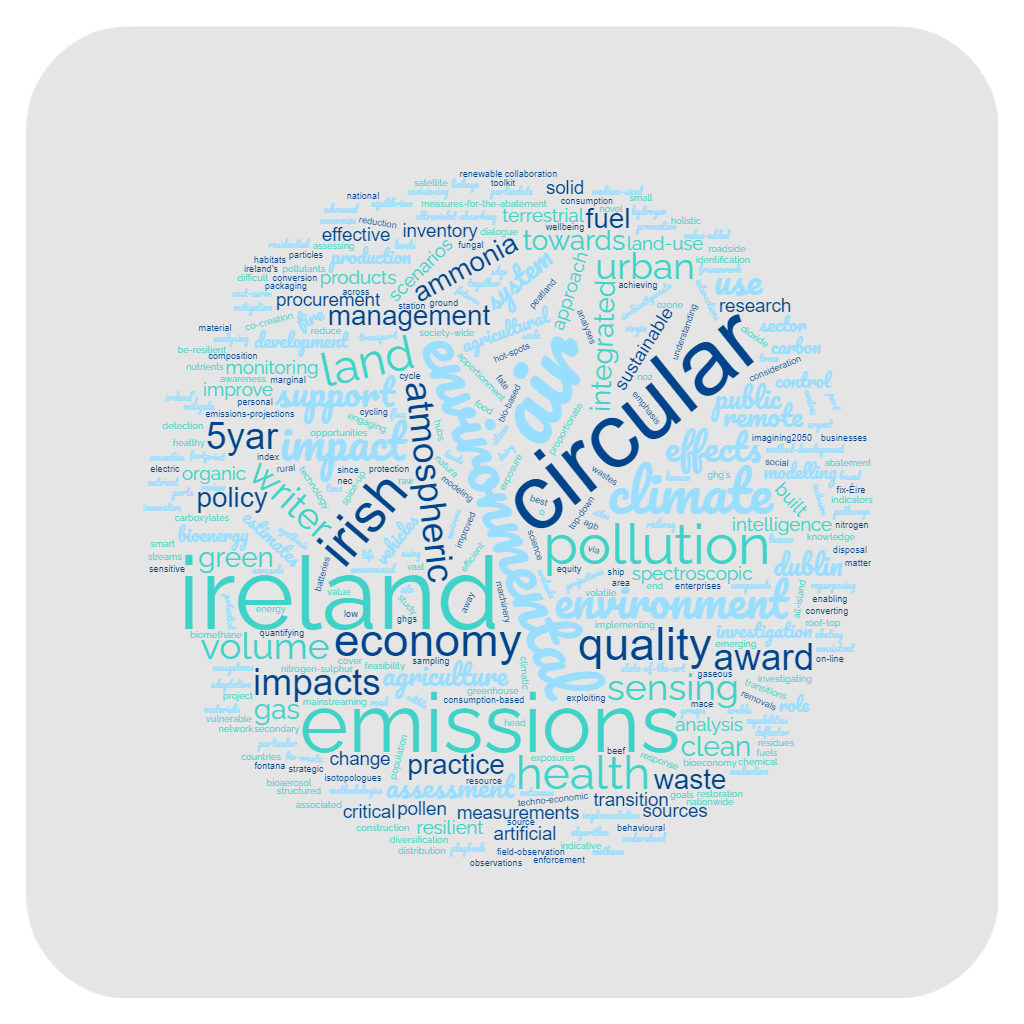There are also various citizen science initiatives to encourage greater engagement of the public in air quality issues including The Globe programme and Clean Air Together.
European Union (EU) Legislation
Limit values have been established by the EU to help mitigate the impact on Member State populations. Upon exceedance of these limit values, Member States must implement air quality plans to assess and combat the problem. A national monitoring network supplies an ever increasing level of real-time data on air quality to the Irish public.
The EPA co-ordinates and manages a nationwide network of 110+ monitoring stations which measures the levels of air pollutants and delivers this information to the public. The EPA is finalising the National Ambient Air Quality Monitoring Programme, which involves a greatly expanded national monitoring network providing enhanced real-time information to the public, as well as an increased local authority capacity to conduct indicative air monitoring.
The expanded network and citizen science projects ensure enhanced availability of accessible real-time air quality information to the public and can inform national policy development.
Air Quality Index for Health
The EPA’s Air Quality Index for Health (AQIH) is a number from 1 to 10 that tells the public what the air quality currently is in their localised area, and whether or not this might affect the health of you or your child. A reading of 10 means the air quality is very poor and a reading of 1 to 3 inclusive means that the air quality is good. The AQIH is calculated every hour, and you can see the current readings at www.airquality.ie. The AQIH can be used by health professionals to help patients who are sensitive to air pollution manage their condition and reduce their symptoms.
Residential Heating
Comparison of national ambient air monitoring results with WHO guideline values for particulates and PAHs shows the need for progress with regard to reducing levels of emissions attributable to residential heating. Following the ban on the marketing, sale and distribution of bituminous fuel (the “smoky coal ban”), which was first introduced in 1990, new regulations on solid fuels were introduced this autumn.
Continued use of smoky solid fuel in Ireland will contribute to air pollution in residential areas. EPA funded research has delivered detailed information on the chemical composition and sources of airborne particulate matter in rural and urban residential areas of Ireland so as to assist appropriate health focused policy interventions.
Road Transport
Resulting from the exceedance of the EU limit for nitrogen dioxide in Dublin, the Local Authorities in Dublin and its suburbs, have submitted an air quality action plan to address the exceedance. The Department of the Environment, Climate and Communications (DECC) together with the Department of Transport (DOT) have established a joint working group on Urban Transport Related Air Pollution (UTRAP) to address this issue.
Emissions from Industry
Industrial Emissions (IE) and Integrated Pollution Control (IPC) licensing, enforced by the EPA, help to curb emissions from industry and the power generation sectors in Ireland. The introduction of the Medium Combustion Plant Directive has also had a positive impact on emissions from industry.
EPA research programme
EPA Research 2030 is a 10-year high-level research programming framework and funding will be allocated under four interconnected research hubs. From 2021, air-related research will be principally funded under the EPA Research 2030 Research Hubs on:
- Delivering a Safer Environment - A clean, vibrant and safe environment is a prerequisite for good health and wellbeing. Environmental degradation, pollution, as well as known and emerging substances of concern threaten our health and that of our supporting ecosystems. Research under this hub will contribute to understanding the risks and benefits, and to identifying appropriate policy and behavioural responses; and
- Addressing the Climate Change Evidence Needs - Climate change is already having an impact in Ireland and strong mitigation and adaptation measures are needed. Research is essential in providing the evidence necessary to improve our knowledge systems and inform policy decisions that will advance our ambitions to be carbon neutral and resilient to climate disruption.
Previously, under its EPA Research Programme 2014-2020, the EPA funded research in Air quality under its Climate Pillar Theme 4: Air Science (Air Pollution and Short-lived Climate Forcers).
Details of the latest EPA Funding Research Opportunities and Awards are available from here.
EPA-funded Research Projects
Since 2014, the EPA funded more than 60 research projects (as of March 2023) relevant to the Air area mostly under its Climate Pillar (Air Quality Theme), corresponding to a commitment of over €12million.
Examples of EPA-funded research projects include research on:
- Air pollution related to agriculture and transport.
- Review of and projections for biomass burning events in Ireland.
- Addressing conflicts of climate and air pollution.
- Residential solid fuel use in Ireland.
- Eco-driving.

For more details regarding the EPA-funded projects, please go to our Public Searchable Projects Database.
EPA Research Publications
To-date, 50 EPA Research Reports have been published in relation to Air (as of March 2023).